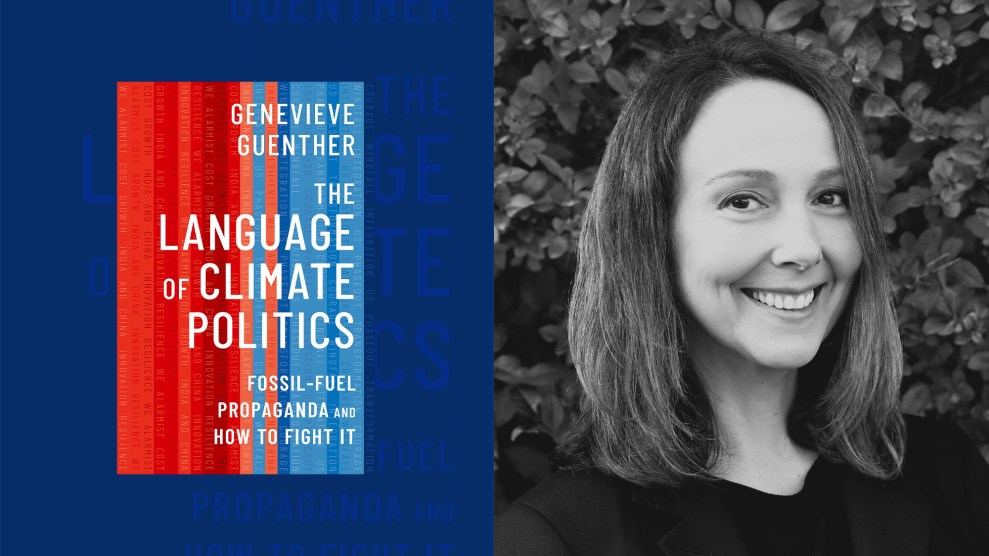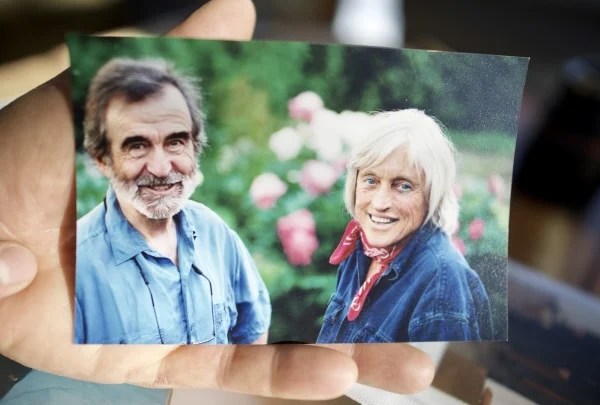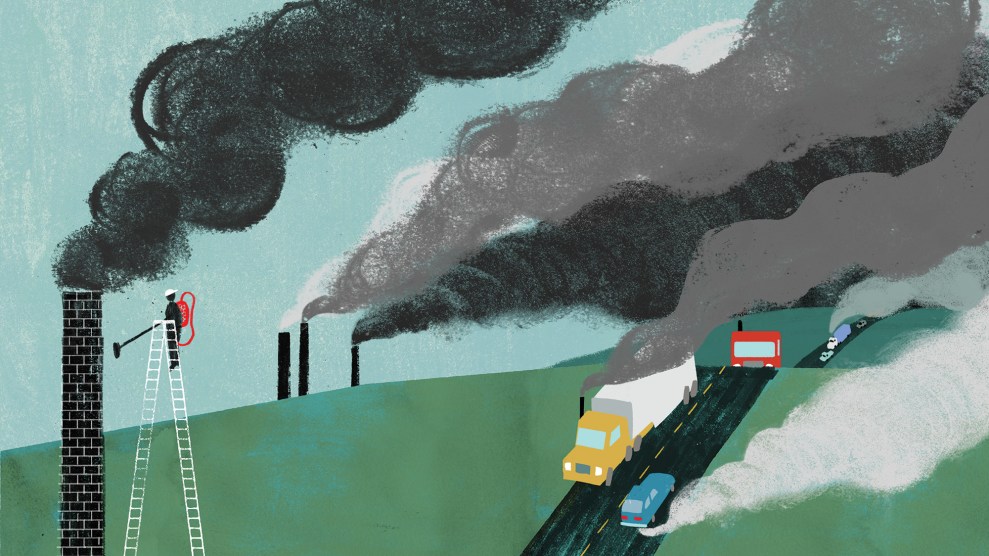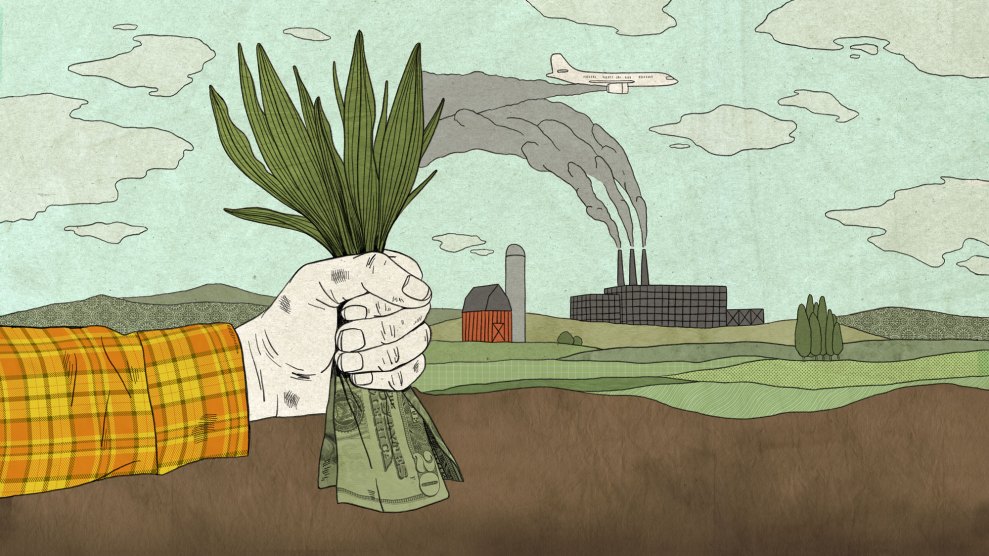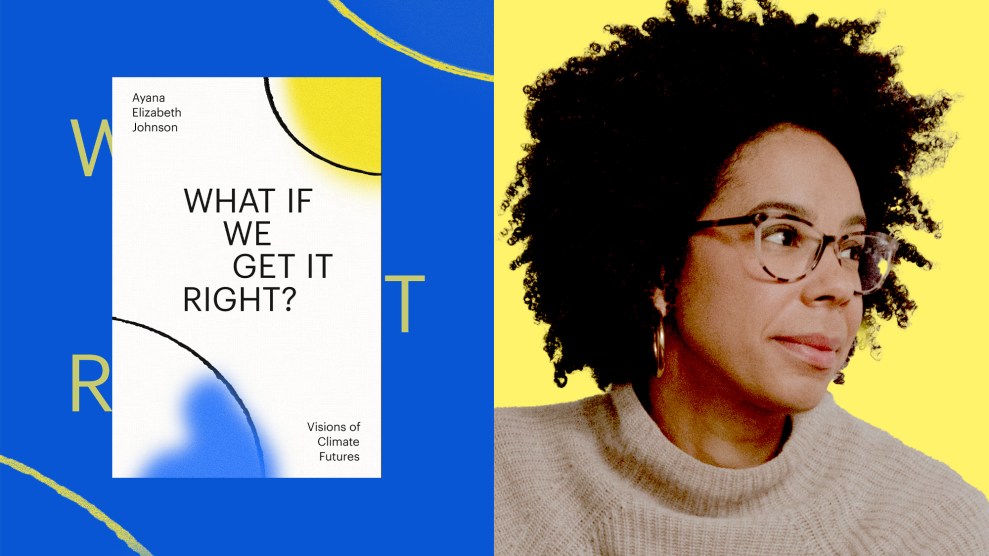
Penguin Random House; Landon Speers
Ayana Elizabeth Johnson has a tenuous relationship with the word “hope.” The marine biologist, policy expert, teacher, and author is too much of a pragmatist to rely on something so passive. Hope as a noun is defined as having an expectation of a positive outcome. To Johnson, that’s not in line with reality. In a chapter near the end of her new book, What If We Get It Right?: Visions of Climate Futures, she writes, “Fuck hope. Where’s the strategy? What are we going to do so that we don’t need hope?”
“Fuck hope. Where’s the strategy? What are we going to do so that we don’t need hope?”
Later in the chapter she concedes that active hope—“catalytic hope” as she calls it—is the type of thing she could get down with. A hope that allows people to exist on auto-pilot could be disastrous. But a hope that inspires people to act could be revolutionary.
What If We Get It Right?, which hit shelves Tuesday, offers some of this inspiration. The book features Johnson’s interviews with a wide swath of people about how we as a society are going to get ourselves out of the climate mess. She talked to the likes of Indigenous rights activist Jade Begay, screenwriter Adam McKay, film executive Franklin Leonard, climate justice advocate Ayisha Siddiqa, and writer and activist Bill McKibben, among others, on topics ranging from how to facilitate a truly just transition to how to design neighborhoods for a warmer, more dangerous world.
Standing apart from the technocratic and economic-oriented solutions literature, What If We Get It Right? focuses on nature-based and justice-oriented strategies. For instance, Johnson interviewed farmer and author Leah Penniman about the role of reparations in regenerative agriculture. While regenerative agriculture has become increasingly buzzy—the USDA is even making massive investments to support it—Penniman highlights that giving farmland back to its rightful owners, including dispossessed Indigenous and Black communities, is just as important as eliminating industrial methods of farming because regenerative practices are derived from those communities.
In fact, the book seems to say, much of the wisdom about how to conquer climate change is already at our fingertips—we just need to do a better job of actually putting those solutions into practice, whether by strengthening our disaster recovery systems, finding new ways of building cities, or covering climate change better in the news. Everyone has gifts to help in the fight. A mass movement to tackle climate change through art, design, science, policy, and justice is our best bet.
Ahead of the book’s release, I spoke with Johnson about her writing process, the plethora of climate solutions out there, and what to do to avoid spiraling about climate change. Our conversation has been edited and condensed.
Why did you want to write this book?
I actually don’t know that I wanted to write this book, but it was like the book that I wanted to read and I couldn’t find it. I was feeling like there was a gap in the literature of books helping us see the way forward, or more broadly than books, I guess just culture.
“We have so much media about climate apocalypse—but not a lot about how we have the climate solutions we need, and what would happen if we just did them?”
We have so much media about climate apocalypse, so many films, so much news about disasters—but not a lot about how we have the climate solutions we need, and what would happen if we just did them? I was wishing for that to be the climate conversation, to shift more to a solutions focus, and not in a techno-utopian kind of way, but in a grounded in nature and justice sort of way.
How do you want a reader to approach this book? Do you want it to be a Project Drawdown thing, where they’re like, “Oh, let me just read one of these chapters, and then, like, go live my life and come back.” Or do you want people to read it completely from start to finish?
I don’t want it to feel like a textbook. I mean, that’s why it took me so long to write the book, because I couldn’t crack the code of how to structure this so that it would feel readable. And my editor had been coming to this event series that I curate and host at Pioneer Works, an arts institution in Brooklyn, and he was like, “This is the book. It’s you telling us who we should be listening to and helping us understand what they’re saying.”
Writing the book, did it make you feel better?
I don’t know that I felt bad when I started. I think the broad strokes of climate science and where we’re heading—unless we rapidly, dramatically change our ways—have been known for decades. That’s still the case.
Everyone has some way they can contribute to climate solutions. I feel better now that this book exists, because it’s like the best I could do.
I’m wondering if you can talk a little bit about the writing process. Where did you write this book and what was helpful for you to get it across the finish line?
I started writing this book at my family farm, my mom’s, in my bedroom there and at the kitchen table that’s described in the introduction of the book. And I moved to Maine almost two years ago now, and the book was written almost entirely here. I moved here because I needed more green in my life, right? And the opening line of the last chapter is: If we get it right, the world is a lot more green. I just wanted to skip ahead to living in that world.
After the last debate, are you feeling hopeful about the future of climate action?
Hope is not really my jam. I’m not an optimist. As a scientist, I find that to be a sort of unscientific position, but I also, you know, just the assumption it’ll be okay in the end—I don’t harbor that, but I do know that there’s also a scientific fact that there are many different possible futures. And my job, as I’ve embraced it, is to help make sure we have the best possible one.
“There are many different possible futures. And my job, as I’ve embraced it, is to help make sure we have the best possible one.”
And that didn’t change after the debate. I mean, I’m still like, “Wow, we have a lot of work to do.” We clearly need a much stronger climate electorate so that politicians feel like they have to talk about their climate plan, so that the debate organizers and moderators feel like they need to ask those questions, not just one at the end, but acknowledge that climate is the context within which all of our other policies and challenges as a country are unfolding.
What’s a good first step for someone who wants to work toward climate solutions but doesn’t even know where to start because they’re so overwhelmed?
I would just say, I get it: It’s the biggest thing humanity has ever faced. Feeling anxious, overwhelmed, depressed about it is a reasonable and very human response. So there’s nothing wrong with that, per se.
But of course, I do hope that people will find a way to leverage that energy into finding a way to contribute to solutions, because we really do have the solutions we need. I think that’s sort of the open secret: We know what to do. We know how to shift to renewables. We know how to green buildings. We know how to improve public transit. We know how to improve agriculture. We know how to protect and restore ecosystems. None of this is a secret. You don’t need to wait for a magical new technology. It’s just a matter of building the cultural momentum, unlocking the political will, pressuring a shift in financing.
Obviously, I know it’s not simple, but I do think it’s important for people to understand that we’re not lacking for solutions. We’re lacking for people working on them.

